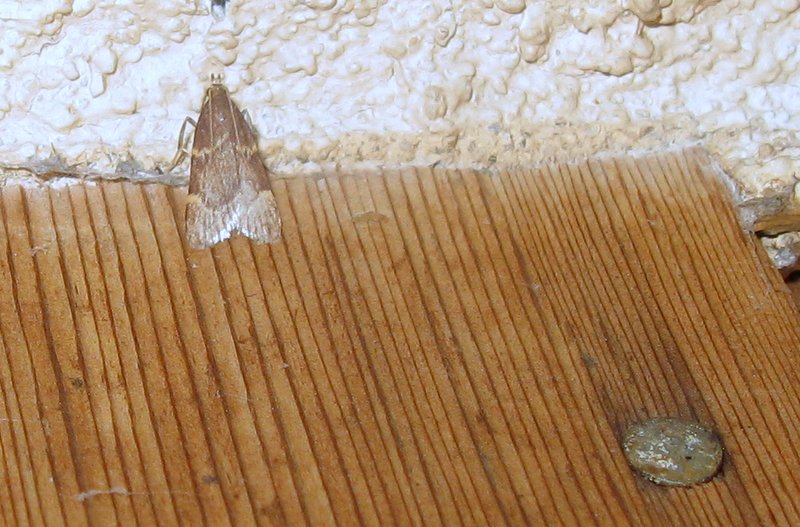Moth Monday: Pseudoschinia elautalis
Monday, March 16th, 2009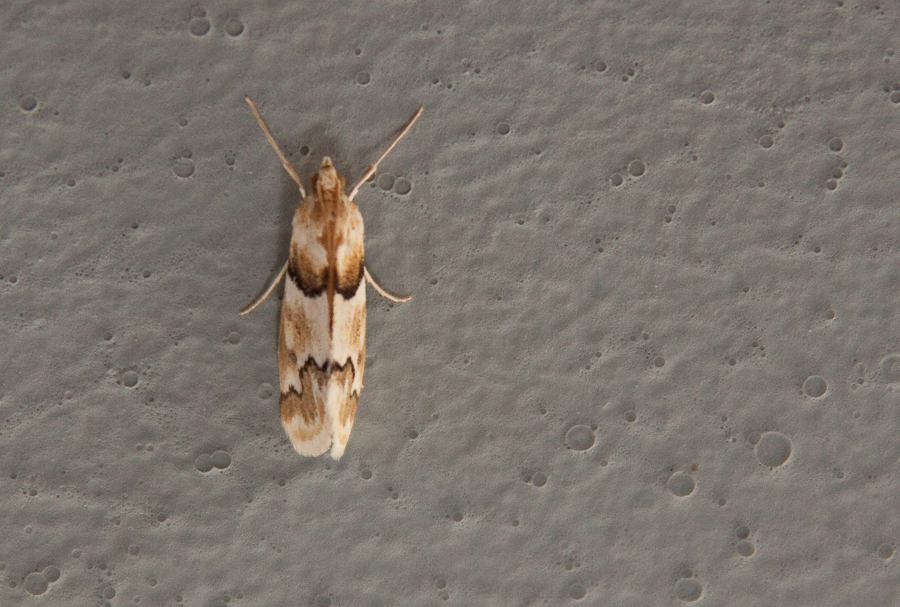
Pseudoschinia elautalis, Hodges#4828
I found this one in the shower at Agua Caliente County Park, which is built at hot springs in the desert. Kudos to John Lee for the ID.

Pseudoschinia elautalis, Hodges#4828
I found this one in the shower at Agua Caliente County Park, which is built at hot springs in the desert. Kudos to John Lee for the ID.
The moths are starting to wake up from the brief Southern California winter (Actually, some never went to sleep, but they didn’t make good pictures.) so let’s see what’s on the memory card. First up we have a beautiful Unciella primula from the Tamarisk Grove Campground in the Anza-Borrego Desert State Park:
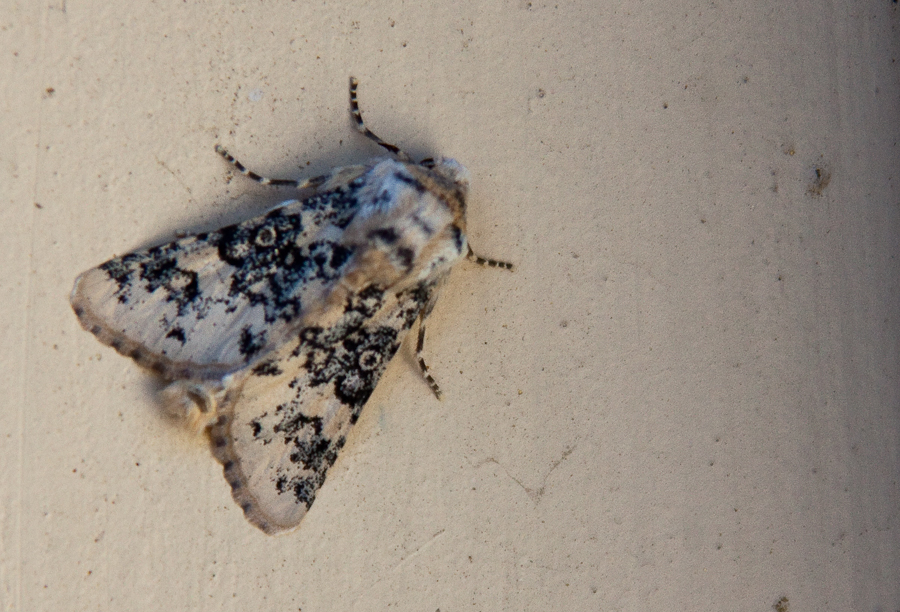
Unciella primula – Hodges#10111
This seems to be a little known and perhaps uncommon species. This was BugGuide’s first record, and the first live image for the Moth Photographers Group. I have not been able to find much information about it. Butterflies and moths of North America doesn’t list any records. It is in the California Moth Specimens Database under its previous name, Oncocnemis primula.
Spring comes early in Southern California. Still this lepidopteran is a year-round visitor. I found it in the cabinet where I keep my bird seed, pet food, and other dry goods. Fortunately it seems to be a singleton since the caterpillars of this species can do real damage to such products (hence the name).
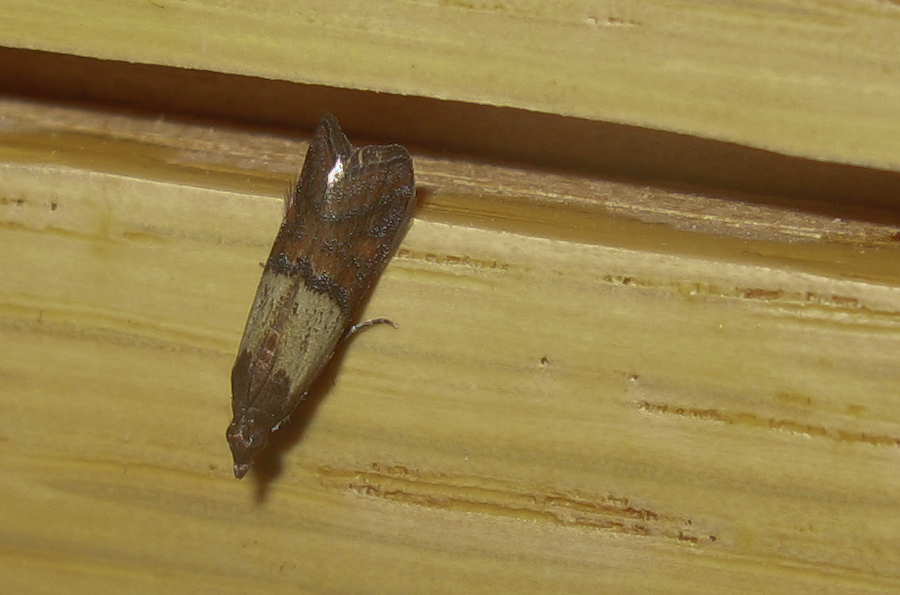
Indian Meal Moth, Hodges#6019 Plodia interpunctella
Irvine, California, 2009-02-09
Thanks to Charley Eiseman for the ID.
(more…)
Here’s one from the vaults. I found these in August, 2007, when these tent caterpillars were all over Jamaica Bay. However they weren’t ID’d until recently. This is the caterpillar of the Ailanthus Webworm Moth – Hodges 2401, Atteva punctella. In this case the moth is a lot prettier than the caterpillar:
You may have noticed I missed Moth Monday last week because I had finally run out of moth pictures. Of course, it’s only the pictures that ran out, not the moths. There are over 10,000 species in the United States and Canada alone, which at a rate of one a week should be enough to keep going for a couple of centuries at least. Last week I was in south Louisiana where many moths are still flying in the unseasonably warm (even for south Louisiana) weather. Here’s the first one from down south, a Florida Fern Moth, shown approximately five times actual size:
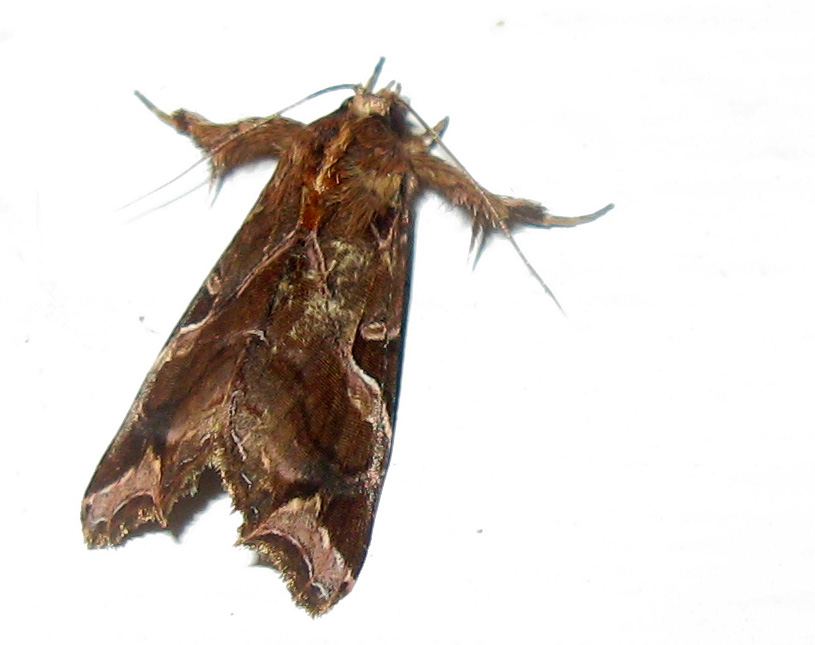
Florida Fern Moth, Hodges#9630, Callopistria floridensis
Metairie, Louisiana, 2008-12-23
Thanks to Bob Patterson for the ID.
(more…)
Many moths are quite small, ranging into the microscopic. This unidentified individual from Santiago Oaks last weekend (2008-12-07) isn’t quite that small, but it is pushing the limits of what my camera can take with anything approaching publishable quality. For comparison’s sake, that’s the head of a nail in the lower right hand corner.
